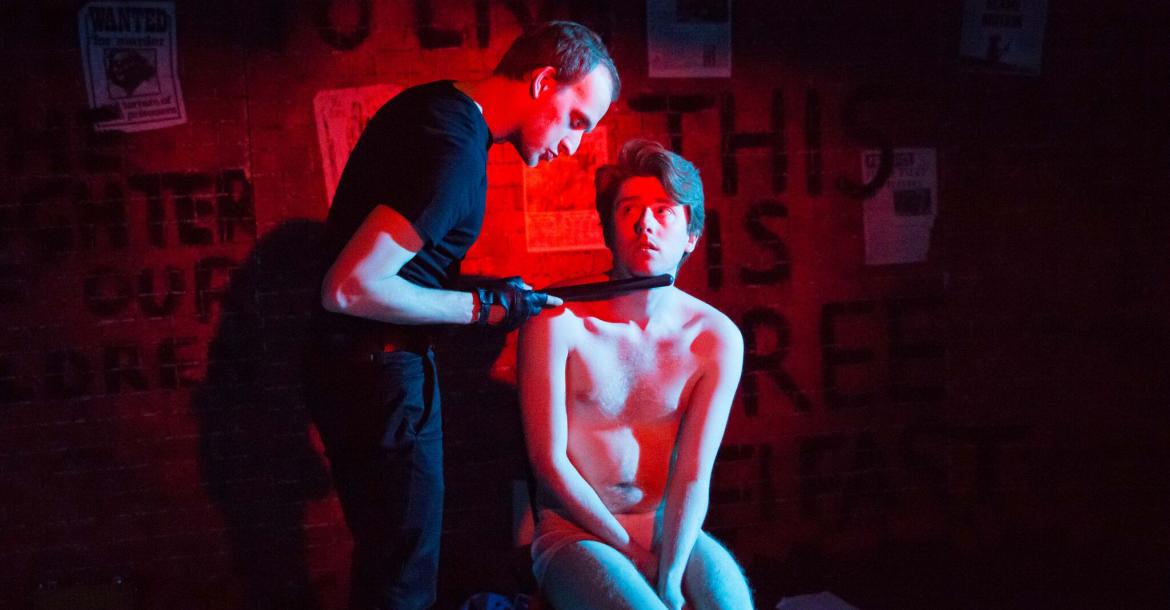Screen Acting Syllabus
'I am truly eternally grateful to you for putting such wonderful people and talented actors in touch with me... the guys I have worked with have truly blown me away. I am overwhelmed by the talent involved'. ~ Ibi Vaughn, Producer, 'Glue' E4
In our professional opinion, every actor, even those wishing to pursue a film career, will benefit from the discipline of live performance.
Therefore, as well as the subjects covered below, our actors can expect to look in-depth at Shakespeare, scene-study, script-writing, voice and movement, Motion Capture, as well as screen acting.
Here is a list of topics covered by our screen acting tutors (see 'Our People').
Term One:
-
General Introduction - what do we mean by 'acting for screen'?
-
The importance of thinking (being) rather than showing/demonstrating
-
The perils of over-acting or 'acting' on screen
-
Study examples from films and ask students to select their own
-
Analysis of close-ups and mid-shots - to blink or not to blink!
-
What should an actor's relationship with the camera be?
-
Does the camera lie? If so, how?
-
Re-action shots - 'listening with the eyes' and 'power listening'.
-
Cultivating positive mental approaches/attitudes to screen acting (relaxation, 'stillness') - 'owning the space'.
Term Two:
-
Differences between film and stage acting
-
The difference between 'persona' and 'character' acting
-
Study examples of 'persona' screen acting (from Cagney to Eastwood to De Niro to DiCaprio)
-
More close-up work
-
Technical considerations to make note of when working on set
-
Hitting the mark - what does this mean?
-
How to 'own' the mark
-
Study examples
-
Film scenes
Term Three:
-
The importance of working with props - from telephones to guns!
-
How to 'own' props and make them work for you
-
Working on combinations of the above eg, close-ups, props, and hitting the mark.
-
Moments of Transition.
-
Full-on scene study and text work, employing everything discussed and experienced in class so far.
-
How to be effective in auditions for film and TV.
-
How to survive (and prosper) on set - professional 'dos' and 'don'ts'.
-
Film scenes
Term Four:
- Genre acting - horror. Occasionally going 'over the top' as a choice. (Think Jack Nicholson in ' The Shining'). Is less always more? Sustaining fear and tension (without tensing) through multiple takes.
- Comedy. Is 'comic' acting different from 'serious' acting? If so, how?
- Docu-style. Look at the work of Ken Loach (Kes), and Mike Leigh (Naked), sometimes known as 'slice of life' acting.
- European acting styles (French, Russian, etc). Observing key differences in approach - distance, neutrality, emotional detachment. The 'power of inscrutability'.Film & Edit Showreels
1 to 1 tutorials will be scheduled on Friday mornings and afternoons.
The syllabus will also include voice/movement, general acting, theatre work and text/verse classes.
Terms 2 and 3 will be developed according to the needs of each group after a Term 1 assessment. Both will include internal shows.
Term 4 will be predominantly concerned with a public theatrical showcase, and the creation of a professional standard showreel.
Hours of attendance may increase, particularly in Terms 3 and 4.
Lateness will not be tolerated.
Acting for Motion Capture - an introduction to performance capture (designed by Robin Berry, see 'Our People'):
- Performers will gain a basic but detailed introduction to the world of performance capture.
- Actors will also hopefully connect more with their own physicality.
- How does it work?
- A brief look at the application and history of performance capture.
- Learning the fundamental differences between acting for camera and acting for mo cap.
- A workshop on creature performance including apes and wolves.
- Scene work with feedback.
What do you gain?
- An insight into the world of Performance capture.
- An introduction into creating physicalities both human and animal.
- A better understanding of how to build a character from the starting point of physicality.
